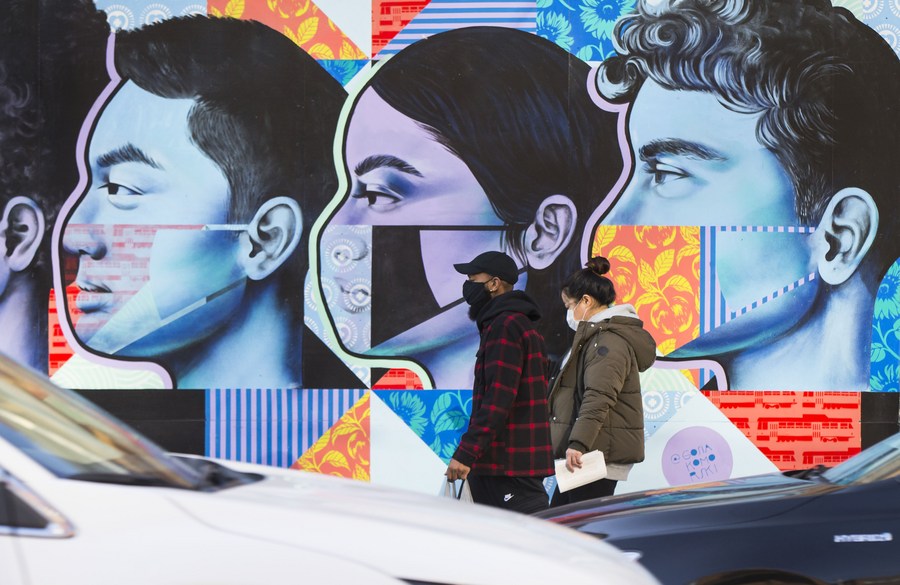Challenges for the G20 in overcoming the pandemic
- By Jiang Shixue
 0 Comment(s)
0 Comment(s) Print
Print E-mail China.org.cn, November 25, 2020
E-mail China.org.cn, November 25, 2020

When the leaders of the G20 met for the first time in Washington D.C. in November 2008, their aim was to jointly end the international financial crisis. At that time, no one could have expected that a decade later they would be discussing how to handle a global health crisis.
Patients have nationalities, but the virus respects no borders. Therefore, dealing with the COVID-19 pandemic calls for a coordinated, united and science-based global response.
In March 2020, the G20 leaders participated in a virtual summit to determine ways to contain the pandemic. They promised to take all necessary health measures, along with the United Nations, World Health Organization, International Monetary Fund, World Bank, and other international organizations, and seek to ensure adequate financing towards this end. The statement of the virtual summit read: "Global action, solidarity and international cooperation are more than ever necessary to address this pandemic."
From Nov. 21-22, 2020, the G20 leaders met for the second time under the Saudi presidency. At this online summit, they agreed to "stand united in our conviction that coordinated global action, solidarity, and multilateral cooperation are more necessary today than ever to overcome the current challenges and realize opportunities of the 21st century for all by empowering people, safeguarding the planet, and shaping new frontiers."
Despite the consensus, the fight against the pandemic still faces many challenges:
First, no one knows exactly when a COVID-19 vaccine will reach the market. Only a scientifically made vaccine – not disinfectant or bleach as President Donald Trump suggested – can prevent people from catching the virus. Many countries have invested heavily in vaccines and tentative results are encouraging. Meanwhile, China currently has five vaccines undergoing Phase III clinical trials.
However, globally speaking, the path to producing a vaccine is not smooth, and has been hindered by political considerations. Not long ago, President Jair Bolsonaro of Brazil was reported as saying that he did not approve the purchase of the Chinese vaccine candidate CoronaVac, stating that "the Brazilian people will not be anyone's guinea pig." According to news analysis, CoronaVac was caught up in a messy political battle between President Bolsonaro and Governor Joao Doria of Sao Paulo, where the state biomedical research center is testing the Sinovac vaccine.
Second, the situation is worsening in developing countries like India and Brazil, which rank just behind the U.S. for confirmed cases. With large informal sectors, poor people in these countries have to make a hard choice: follow the lockdown rules and stay home, or go out and make money.
Many developing countries also lack sufficient medical resources such as hospital beds and medicines. As an April 21 article in the Guardian pointed out, "While Covid-19 is a test of leadership everywhere, in countries with widespread and deep poverty where medical supplies are severely limited, even the best leaders cannot save their populations from health and economic vulnerabilities."
Third, the world economy is sluggish. Measures to tackle the pandemic, particularly lockdowns, implemented by almost all countries, have constrained economies. According to the U.N., global foreign direct investment in the first half of 2020 was down 49% compared with 2019. Additionally, the WTO forecasts a 9.2% drop in the volume of world merchandise trade for 2020. This kind of global economic situation is unfavorable for the world in overcoming the pandemic.
Finally, the U.S. remains unwilling to tackle the pandemic in an earnest way. As of Nov. 22, the country had 11.8 million confirmed cases and more than 250,000 deaths, according to the WHO. However, the Trump administration continues to politicize the pandemic by blaming China as well as political opponents, and refuses to take effective actions. There is now high expectation in Joe Biden and Kamala Harris, who say they will move the U.S. response in a dramatically different direction.
Some netizens have jokingly suggested that "G20" actually means "G2+0," since without the G2 (China and the U.S.), the G20 would be zero. But China is against the notion of the "G2" or "Chimerica," and has always upheld the principle of multilateralism.
In fact, the idea of a G2 is increasingly out of the question because of the United States' antagonism towards China. It is clear that unwillingness of the U.S. to cooperate with China will mean the G20 will struggle to contain the pandemic.
Despite these challenges, China is ready to undertake an important role in the global fight against the pandemic. China will be one of the few, if not the only, major country to witness positive economic growth in 2020. Moreover, alongside the support it has already provided countries around the world – such as medical teams and supplies – China will do its utmost to offer a vaccine as a global public good.
Jiang Shixue is Senior Research Fellow of the Chinese Academy of Social Sciences and Distinguished Professor of the Shanghai University.
He is a columnist with China.org.cn. For more information please visit:
http://m.91dzs.com/opinion/jiangshixue.htm
Opinion articles reflect the views of their authors, not necessarily those of China.org.cn.
If you would like to contribute, please contact us at opinion@china.org.cn





